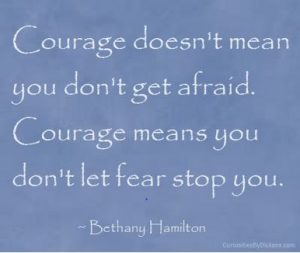 Some see networking as a necessary evil. Having worked with newcomer professionals from all over the world, I don’t doubt they would agree – wholeheartedly. But it doesn’t have to be this way.
Some see networking as a necessary evil. Having worked with newcomer professionals from all over the world, I don’t doubt they would agree – wholeheartedly. But it doesn’t have to be this way.
Shifting perspective, having empathy, and being courageous goes a long way. In Daniel Pink’s 2016 convocation address to the graduates at Georgetown University, he asks them to do a simple test, drawing the letter, Capital E, on their foreheads. Not meant to be overly scientific but a quick snapshot on perspective-taking and how we see and communicate with others, take the test here.
In my networking workshops, I use two examples of how empathy can help shift perspectives for newcomer professionals. As learners living and working (hopefully) in a new cultural environment, they see themselves in a new light as they are constantly tested and face seemingly insurmountable barriers of communication.
In my first example, I set the scene by asking our learners to imagine themselves at a reception at an industry conference. Someone new approaches them and they stumble through a self-introduction. I ask, “How do you feel when this person is trying so hard to take the first step in introducing themselves?”
With our second example, I ask them, “Now how do you feel when someone asks you for help? Depending on the context, most likely, you would be open to helping them, right?”
“Now how would you feel if the situations were reversed?” I.e. how do they think the person listening to them would feel if they stumbled through a self-intro and that they were being the ones asked for help. Why would it be any different than when they were the listener?
Stories about my overseas experience working in Africa and Asia also as a newcomer professional has given me invaluable insights in relating and sharing with newcomer professionals to our country and whose English is their second/third language.
While living and working on a somewhat remote island, Sulawesi in Indonesia, all I could do was smile when I arrived, not knowing how to say “good morning”. In my first month, our project team leader sent to Yogyakarta for intensive language training, one-on-one with university students as tutors in a professional language training school, eight hours a day, and living with a home stay family for three months. I knew how it felt to speak like a kid in kindergarten when what I needed to express were concepts a bit more complex to my Indonesian staff.
Our newcomers in Canada have the added pressure of trying to find a job mid-career and maybe changing careers while providing for their families in a new country. It is a major sacrifice they have made for their future generation and is not for the faint-hearted but for the whole- smart- and brave-hearted.
What newcomer professionals bring to the workforce is untapped global talent and we would be remiss if we do not listen, engage, and be open to someone who is different from ourselves. Living in a digital age, the barriers will and are falling away more rapidly but our mindsets must also adapt and be agile enough to realize the potential and power of different points of view.
As Stephen R, Covey, the bestselling author of “The 7 Habits of Highly Effective People” wrote, “Valuing the differences is the essence of synergy – the mental, the emotional, the psychological differences between people. And the key to valuing those differences is to realize that all people see the world, not as it is, but as they are.”
Perspective, empathy, and courage are essential for powerful networking not only for newcomer professionals but also for us to connect with others and also for us to help others connect. As newcomer professionals, network, introduce yourselves, and be of service to others are the first steps in building great relationships and being a part of a kinder, wiser, and more giving global community.